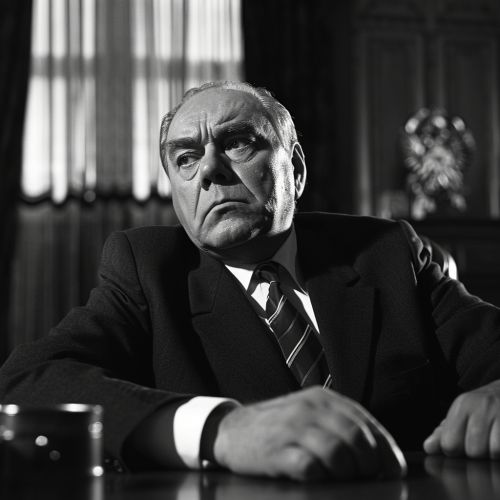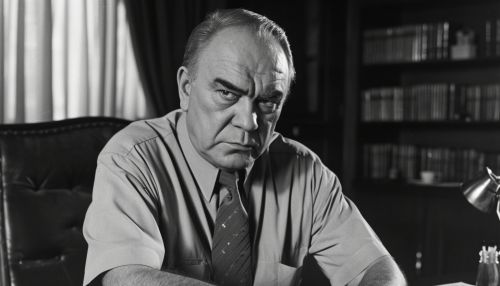Leonid Brezhnev
Early Life
Leonid Ilyich Brezhnev was born on December 19, 1906, in Kamenskoe (now Dniprodzerzhynsk), Ukraine, then part of the Russian Empire. His father, Ilya Yakovlevich, worked in a steel factory, while his mother, Natalia Denisovna, was a seamstress. Brezhnev was the first of their three children.
Education
Brezhnev attended the local school in Kamenskoe and later enrolled at the Dniprodzerzhynsk Metallurgical Technicum. After graduating in 1923, he worked as a metallurgist in the iron and steel industry. In 1927, he joined the All-Union Leninist Young Communist League (Komsomol) and became an active participant in party activities.
Political Career
Brezhnev's political career began in earnest in 1931 when he joined the Communist Party of the Soviet Union (CPSU). He held various administrative positions in Dniprodzerzhynsk and later in Dnepropetrovsk. During the Great Purge of the late 1930s, Brezhnev was promoted to the position of Secretary of the Regional Party Committee in Dnepropetrovsk, a post he held until 1939.


World War II
During World War II, Brezhnev served as a political commissar in the Red Army. He was responsible for maintaining the ideological purity and morale of the troops. He was also involved in the Battle of the Dnieper and the liberation of Ukraine from Nazi occupation.
Post-War Period
After the war, Brezhnev held various high-ranking positions within the CPSU. He served as First Secretary of the Moldavian Soviet Socialist Republic from 1950 to 1952, and later as Secretary of the Central Committee of the CPSU from 1952 to 1957.
Leadership of the Soviet Union
Brezhnev assumed leadership of the Soviet Union in 1964, following the ousting of Nikita Khrushchev. His rule, known as the Brezhnev Era, was marked by a period of economic stagnation, political corruption, and increased military spending. Despite these issues, Brezhnev's tenure also saw significant achievements in space exploration, including the launch of the first manned space station, Salyut 1.
Death and Legacy
Brezhnev died on November 10, 1982, after suffering a heart attack. His death marked the end of an era in Soviet history. Despite the controversies surrounding his leadership, Brezhnev is remembered for his efforts to maintain peace during the Cold War and for his contributions to Soviet space exploration.
